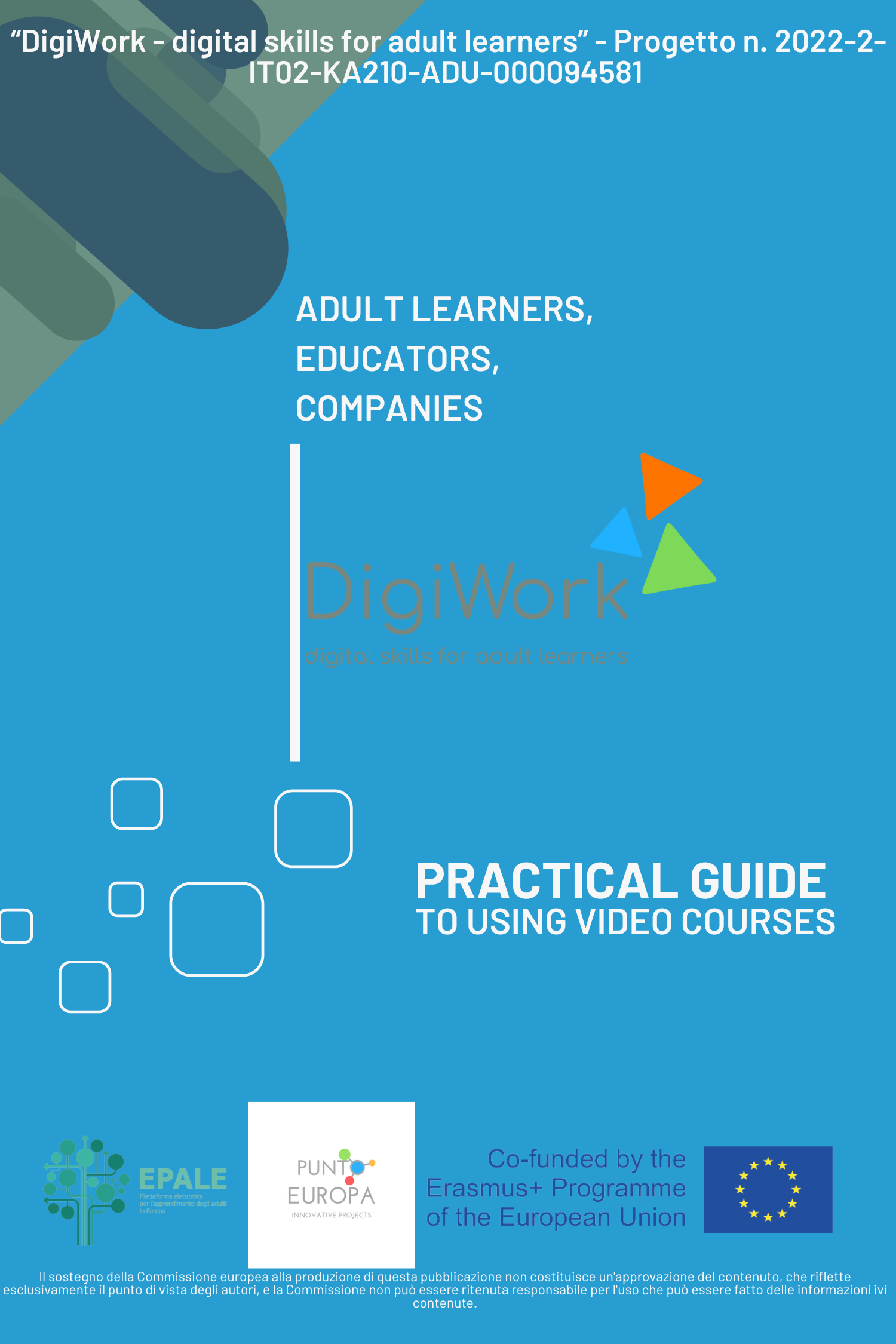Maximizing Your Learning: A Practical Guide to Using DigiWork Video Courses

Enhance your digital skills with DigiWork's video courses—learn how to make the most of these resources with our comprehensive guide.
The DigiWork project has made significant strides in bridging the digital divide by creating a series of video courses designed to enhance the digital skills of adults over 45. To help learners, educators, and companies fully leverage these resources, the project team developed a Practical Guide to Using Video Courses. This guide serves as a roadmap for navigating the wealth of knowledge available on the DigiWork YouTube channel, ensuring that every participant can maximize their learning experience.
Introduction to the Guide
The guide begins by welcoming learners into the DigiWork program, emphasizing the importance of digital skills in today’s world. Recognizing the challenges that adults over 45 may face when engaging with digital technology, the guide is crafted to be accessible, engaging, and adaptable to various learning needs. It provides a structured approach to using the e-learning materials, ensuring that learners can progress at their own pace while acquiring essential digital competencies.
Detailed Overview of Video Courses
The guide breaks down the ten key e-modules available on the DigiWork YouTube channel, providing an overview of each module’s objectives and tools. These modules cover a wide range of topics, from basic computer usage and digital security to advanced skills like social media management and working with large language models. Each course is designed with practical applications in mind, offering video tutorials, interactive quizzes, and hands-on exercises to reinforce learning.For example, the "Digital Security" module aims to raise awareness about online risks and teaches best practices for protecting personal data. Learners can engage with practical guides on password management and videos that demonstrate how to recognize phishing attempts—crucial skills in today’s digital environment.
Guidance for Educators, Learners, and Companies
One of the guide’s standout features is its tailored advice for different audiences:
- Educators are encouraged to assess their learners' digital competencies before starting the program and to offer continuous support through feedback and tutoring sessions. The guide also suggests integrating practical activities, such as workshops, to reinforce the skills learned in the video courses.
- Learners are advised to approach the courses with commitment and consistency, dedicating regular time to study and actively engaging with the materials. The guide emphasizes the importance of practicing new skills immediately after learning them and encourages participation in online study groups or forums for additional support.
- Companies are provided with strategies to incorporate the DigiWork modules into their professional development plans. The guide suggests allowing employees to complete courses during work hours and monitoring their progress through evaluations, thus integrating newly acquired digital skills into the workplace.
Practical Tips for Using Video Courses
To help learners get the most out of the video courses, the guide offers practical tips on how to use the materials effectively:
- Planning: Start by identifying the skills you want to acquire and set up a weekly study plan.
- Attention to Detail: Engage deeply with the videos, take notes, and use quizzes to test your understanding.
- Practical Application: Immediately apply what you’ve learned in real-life scenarios.
- Community Engagement: Join discussions and seek support through comments and online forums.
Conclusion
The Practical Guide to Using DigiWork Video Courses is more than just a manual—it’s a comprehensive tool designed to empower learners, educators, and companies alike. By following the structured advice and practical tips provided, participants can fully engage with the e-learning materials, ensuring a successful journey toward digital literacy. This guide not only enhances the learning experience but also contributes to building a more inclusive and digitally proficient society.